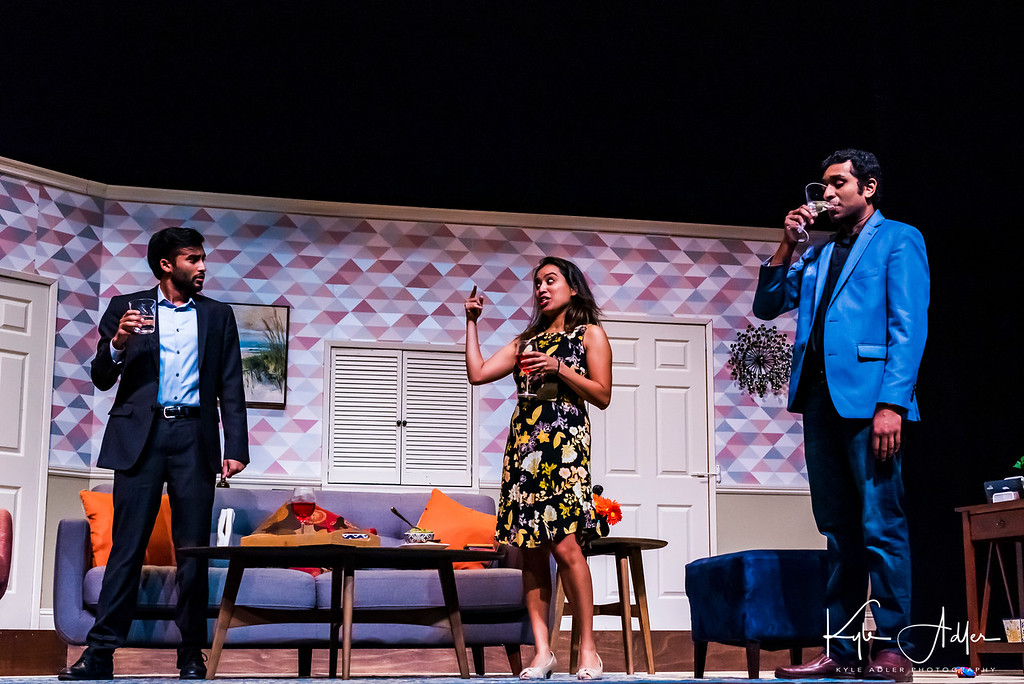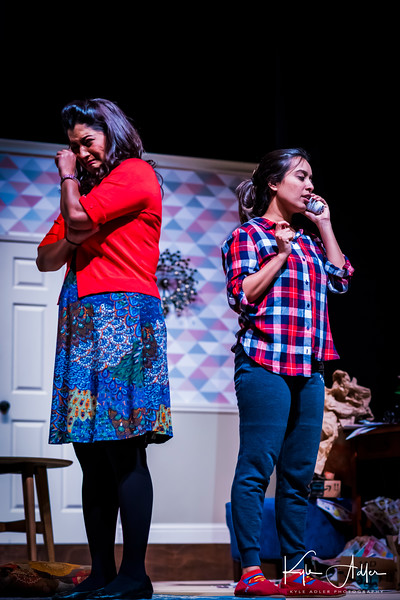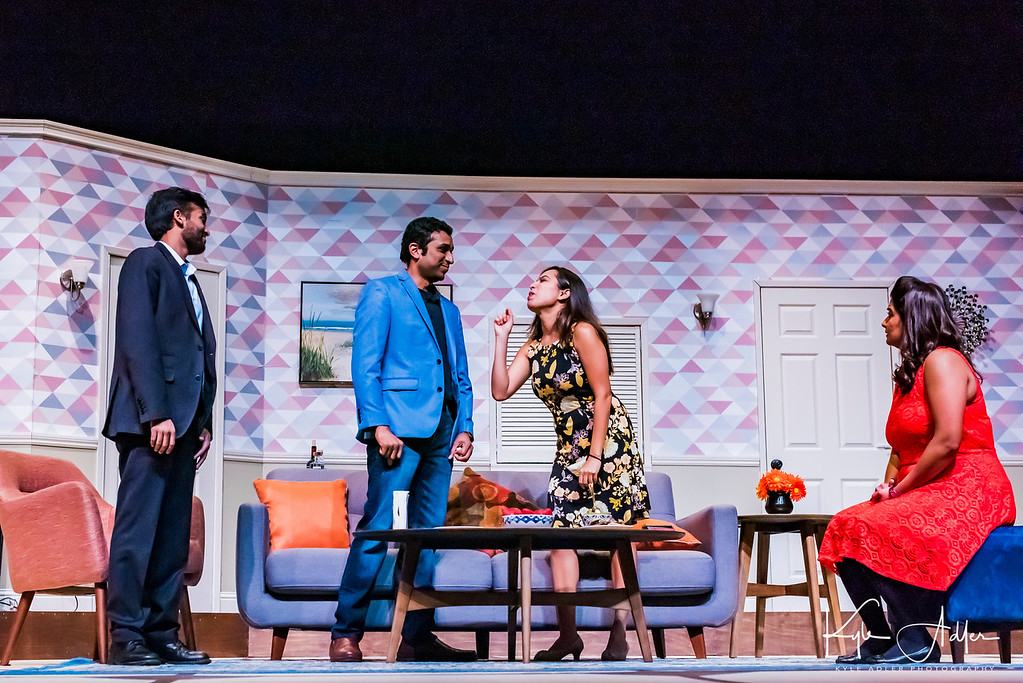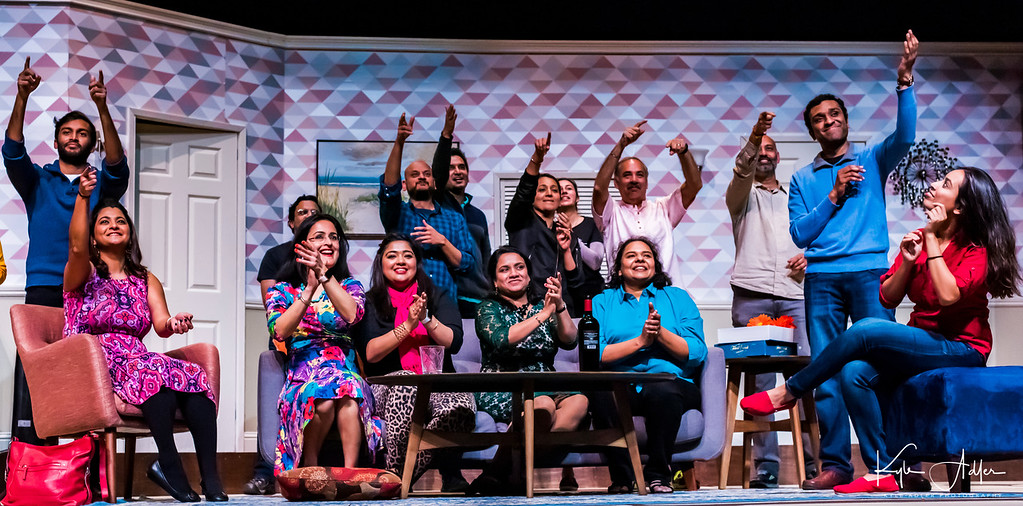Naatak
These last few months, I’ve been part of Naatak, an Indian theater company in the Bay Area. I had taken a few theater classes in college, but this was my first time acting in a full length production. Grateful to our director and script adapter, for giving me an opportunity to be part of this play, and to such a hardworking and a wonderful cast and crew! I was blown away by how much work the props and set team did behind the scenes for this production. Thanks to all of my family and friends who came out to support, including friends from Hindi Club, Stanford, Bellarmine, and Cerebras. Special thanks to Shailee Samar and Sharvari Bhide for their hilarious posters!

Manolo Costazuela, in Naatak’s adaptation of Neil Simon’s The Odd Couple. Manolo is a romantic airline administrator born to an Indian mother and Spanish father. He is sexy, charming, and when it comes to matters of the heart - a little emotional. While he still misses his ex wife, he can’t help but be smitten by two beautiful neighbors downstairs. And sure, there are a few language barriers - but they are nothing Manolo and his elder brother can’t handle.
The play centers around two friends, Geeta and Suman, who decide to live together, but quickly start getting on each other’s nerves. The following hour and a half of showtime has plenty of comedy - with a cranky Geeta, sad Suman, confused group of friends, and two single, recently divorced neighbors upstairs (Manolo and his elder brother, Jesus).

GEETA : [into phone] Well, personally I think she’s taking it very well.
SUMAN : I am not taking it well. मेरी हालत देख रही हो?(Don’t you see my condition)
GEETA : [ on the phone, warmly ] Oh, मैं जानती हूँ तुमने कोशिश की है. (I know you tried.) Bless you.
SUMAN : What do you mean “Bless You”? Don’t “Bless Him”!!
GEETA : [ to SUMAN ] उसे छींक आ गयी थी (He had to sneeze!). Will you calm down?
Press coverage here: http://www.indiapost.com/odditiesin-couples/ Note that the article incorrectly characterizes Manolo/Jesus - in this Naatak adaptation they are of Indian-Spanish origin.
Photos here: https://www.kadlerphotography.com/Events/Naatak-The-Odd-Couple

As exciting as it was to be part of a production, it came with its own challenges.
Theater requires passion. Rehearsals involve many personalities working towards a single goal and it takes an experienced director to be able to bring out the artist in everyone involved. Good theater is also proof that two artists are better than one. So much is required to put on a production - from rehearsals and blocking, to props and costumes. It’s humbling how much energy members of the Naatak community put into their productions, even if they are not acting or in the limelight.
Being live makes theater both high risk and low impact (in terms of viewership). Our efforts culminated in four shows with a viewership of ~1200 audience members, after which there was a wild after party (there are some songs and uncles and aunties should not be dancing to) and some thank yous/goodbyes. Live art can be very powerful for the attendees who are there, but in an era of youtube-level mass distribution (where content distribution continues well after time posting), it can also be somewhat ephemeral. On some level, theater is an artist’s art - the impact is not only on the viewers, but also intensely felt by the cast and crew. It’s what makes community theater so special… the 50 year old mother who rediscovers the stage for the first time since college, the shy office worker who realizes that he could make a full theater laugh, or the Indian-American college student who learns that there is a world of art made by people who look like him. Naatak excells at this.
I also learned how theater intersects with ethics. One of my roles at Stanford was facilitating conversations around race, gender, sexual orientation, and income for undergraduate students. In my training for this, I learned about stereotypes and power dynamics. I learned how beliefs about certain segments of society can be perpetuated even by the most well intentioned words. To me, it is important for a cast and crew to take responsibility for everything said on stage - or to at least callout the stereotypes used and make the audience think deeply about their views of the world.
Some dialogues in this 1985 play ought to have been changed. When I raised concerns over the characterization around suicide, my discomfort around racist material/jokes, and disapproval over statements involving sexual orientation or gender identity, it was suggested that Naatak’s job was to entertain, not teach, and the jokes were OK in context. And while, to the credit of the theater leadership, my concerns were thought about seriously and I was openly heard out - some changes were made, many were not. The belief was that if you have to portray a character who says something offensive, that’s OK: it is the character who is offensive, not you. To me, if your story absolutely needs a character who says something racist/misogynistic/etc, it ought to be done with skill and awareness, so that the audience understands the impact of what is being said and why it is not okay. Allowing some viewers to leave with stereotypes reinforced - and not pointed out - is a little irresponsible, especially in this climate. We can do better. In the South Asian community, it is critical to have conversations around suicide (and offering support and care to those like The Odd Couple’s Suman), race (without stereotyping other non-white minorities such as Manolo/Jesus), and gender identity/sexual orientation (without making heterosexuality and cisgenderedness the norm). For my Naatak friends reading this post and adapting new plays, I know that Naatak is home to many perspectives, and I hope you can consider this and think more about the hidden impact of the script. Naatak’s audience will soon grow beyond older South Asian generation to also include the younger South Asian community. These new patrons may call for different ways of thinking about theater.

Thanks Naatak! Upward and onward!


